
A young man from an early age falls in love with a girl whose family is not in good standing with the ruling Communist party. His father however is a member of the "Stasi", the secret state police. The father not only hinders his son's relationship with the girl, but he arranges for his son, after finishing school, to become a Stasi spy himself.

Tom, a 17-year-old window design apprentice, dreams about true love. One day, a new girl from East Berlin moves to town. Tom has a crush on her and will do anything to impress her. When he finds out that she plans to become an actress, he even discovers the aspiration to perform himself. For a while, Tom is on cloud 9.

Olga
Mostly fictional episodes in the life of famous german social-critical painter Heinrich Zille.

Tante Lucie
19-year old Benjamin, called Ben, works as a cashier on the fairground und is impressing girls with his youthful self-confidence. After an argument with his uncle, who had caught the boy with a 16-year old girl, Ben leaves his familiar surroundings und ventures into the world beyond the fairground. At Berlin′s Ostbahnhof, he meets the much older cookmaid Hanna, who puts homeless Benjamin up in her flat. Ben finds work as a welder in a factory where he at first has to cope with the prejudice of his sceptical co-workers.
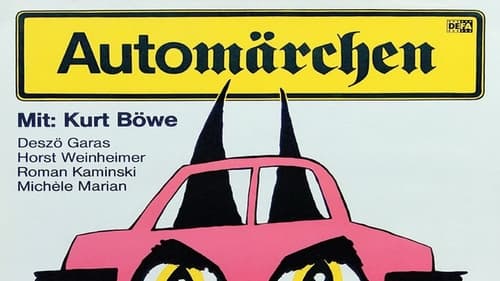
This quirky episodic comedy weaves together three plotlines centered around the employees of a car garage, with some unexpected fairytale elements to get things moving. A woodland fairy convinces shy bookkeeper Piel to suddenly start driving his Trabi far above the speed limit. Manager Neumann sells his soul to a black cat in order to purchase a more respectable vehicle. And a spirit named "Car Accident" offers to warn owner Sengebusch about upcoming traffic accidents so he can make money by always being the first on the scene.

On a forest road in the Brandenburg March, village teacher Potsch accidentally encounters the distinguished Professor Menzel, who got stuck there in his car. In the conversation that ensues, Menzel and Pötsch quickly discover that they both are great admirers of the early 19th-century writer Max von Schwedenow who was born in the area.

Anita Meier

East German television film.
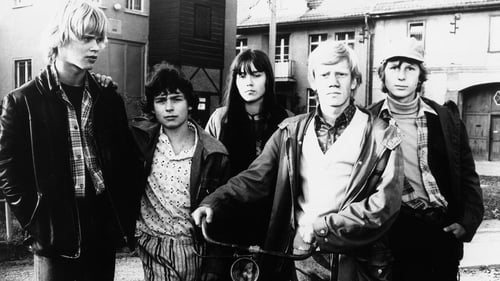
Dickliche Frau
Max Stricker, an old anti-fascist, informs a class of eighth graders before their planned visit to the former concentration camp in Buchenwald. But the boys and girls are not very interested in Max′s lecture and instead stop his lecture with their constant interferences. On the trip to Buchenwald, the class roughnecks around wannabe hoodlum King also want to cause trouble. Thus, a small group of pupils secretly leaves the train before it arrives. Max notices the runaways, follows them, and offers them a bet: He challenges them to get to Weimar on their own, with only five Marks left.

The wrenching story of a woman sentenced in 1934 to ten years in prison for antifascist activities. The love between her and her fiancée enables her to survive the tribulations of her time in prison, where she is one of few political prisoners.
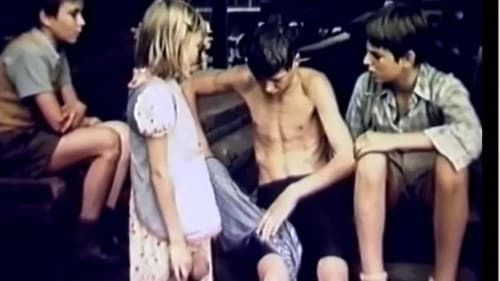
1934, Germany. The ten-year-old Peter lives in a small town with his parents. His father, an underground Communist, is arrested. In the summer vacation the kids from the neighbourhood fight in two teams, which prevail in turns. One team, led by Ewald, imitates the Nazis, while the other, headed by Fritz, follows his Communist father's example.

After a fierce argument Steffi Zinn′s husband leaves the joint flat and stays away from home over night. The next morning, his wife Steffi has disappeared and is reported as a missing person. Captain Lohm takes over the case and at first looks for signs of a murder, but to no avail. Then, Steffi′s body is found in a lake. After her funeral, a stranger who had attended Steffi′s funeral for a short time is also found dead in a lake, and the connection between the two cases becomes apparent.

Gräfin Bernbeim

A flamboyant comedy about love, work and money—revealing that the "planned" economy produced some unconventional entrepreneurial methods.

After a wolf had killed a sheep in their village, 12-year old Roland and his friend Hugo keep track of the predator. Roland wants to build a trap to capture the wolf alive. His father, on the other hand, wants to kill the animal with the hunting collective. Thus, father and son become rivals. Whereas his father takes leave from his job to lie in wait for the wolf, Roland ditches school and tinkers with his trap.

Berlin at the end of the 1940s. Anneliese Weyher is working as a switchboard operator. She is living with her aunt after losing her parents in the war – a stroke of fate that has thrown the young woman off course emotionally. Indifferently, she is doing her work; her private life consists of an affair with a black-marketeer. Even when Anneliese witnesses an armed robbery, committed by infamous Wollnick and his gang, she stays lethargic and apathetic – she keeps silent instead of helping the inspector who is a friend of her aunt. It is not until Anneliese by coincidence meets her former lover, the watchmaker Kurt, that her life seems to take a positive turn.
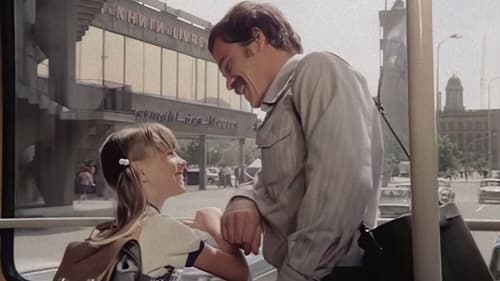
A story about Ulrike, a ten year old girl who is looking for a new father with energy and determination.

A funny story about fifth grader Ottokar who is always ready to fight for justice.

Vienna, 1813-1819: Beethoven (played by Donatas Banionis) is at the peak of his fame. Orchestras all over the world play his music, but he lives modestly and is dependent upon private patrons. Nagged by his patronizing brothers, spied upon by officials for his republican beliefs and faced by his progressive hearing loss, the composer becomes more and more isolated. Seeman’s poetic film explores the joys, heartbreak and artistic spirit of the great composer as he works on his Ninth Symphony.

Gabriele Metzke
This episodic comedy explores love in all its varieties.

Frau Groth
The five-part feature, based on the novel by Helmut Sakowski, focuses on the friendly but also rival relationship between Druskat and the self-righteous Max Stephan, an old pal with different attitudes towards life and socialism . Druskat came to Mecklenburg as a refugee after World War II, became an integral part of the community, but also repeatedly caused a stir. Since the death of his wife he lives only with his daughter Anja, although there were enough women who wanted to be with him. Now he´s chairman of the LPG, the "volutary" federation for agriculture and animal husbandry. One evening, two men from the public prosecutor's office come to pick him up. He seems prepared, but Anja doesn't know why. Her first way leads her to Max Stephan, LPG chairman in the neighboring village. She happened to be there during the last argument between them, Max threatened to literally destroy Daniel. Did he carry out this threat? In conversations with the villagers, she gradually learns the truth.

Christa
Jette and Johannes have been living together for two years when Johannes suggests that they "legalize" their relationship. Jette loves him, but the proposal of marriage terrifies her.

Sportlehrerin
The twelve-year old Susanne is a dreamer and feels misunderstood by her classmates. She pours out her heart to an old lock keeper, who understands her well. He gives her a ring, which has the ability to help its owner. Susanne believes greatly in its magic power. Some wishes actually come true but others fail.


Young seminary student Franziskus (Benjamin Besson) has been ceremonially ordained. He wants to escape the harshness and injustice of the world and devote himself to the service of God in the quiet seclusion of a monastery. He is also hoping to forget the beautiful lady Aurelie (Jaroslava Schallerová), whose life he saved in a flooded brook and with whom he spent an amorous night. He knows that her father would never allow her to marry him. But the devil dressed in a monk's habit and under the name Viktorin (Andrzej Kopiczynski) intervenes in Franziskus's destiny and attempts to lead him astray. To do so he first uses the diabolical elixirs kept at the monastery as a rare relic. When the young monk gets expelled from the monastery, Viktorin prepares another trap with the help of Aurelie's stepmother Euphemie (Milena Dvorská).


Frau Bunzel
Günter and Gudrun Piesold are very busy with their careers as a TV comedian and an actress, so Grandma takes care of household chores and childcare. But when Grandma remarries, the Piesolds are faced with chaos at home and a burning question: Who will take care of the household?
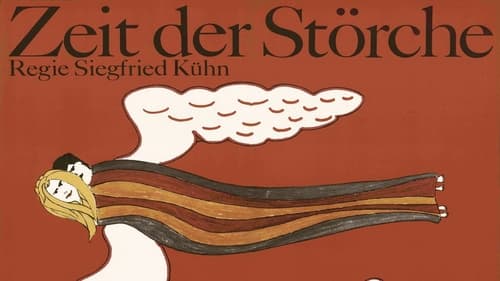
Susanne and Christian get to know each other during a wonderful week in summer - and fall in love. This, however, leads to conflicts: up to now, Susanne has been living with Wolfgang, a biologist. This shared life was harmonious and based on mutual trust. Wolfgang is not only resolute and in full command of social situations; he has also always been the stabilizing force in the relationship. This is precisely why Susanne now feels drawn to the unsettled, unsteady and frivolous Christian, the complete opposite of the calm, well-balanced Wolfgang. And Christian, working as a shift boss on a natural gas derrick, has become more aware of his personal and social responsibilities as a result of loving Susanne.

2. Fee
On the occasion of their daughter's birth, the king and queen give a lavish feast. Among the guests are twelve fairies who endow the infant in the cradle with all good qualities. As the king loathes diligence, he does not invite the thirteenth fairy - the fairy of diligence. A captain lets her slip into the castle and she casts a spell on Sleeping Beauty, wishing death upon her. The twelfth fairy transforms and mitigates the spell. On the day she turns fifteen, the princess is to sink into a hundred-year sleep after pricking her finger on a spindle.

Luise Bärensprung
Kummerow, a village in North East Germany, around 1900: Mean-spirited miller Düker wants to drive cowherd Krischan out of the village. Being popular with the local children, Krischan can rely on the help of schoolboys Martin and Johannes and their friends, who try to prevent the miller's plans by playing pranks on him.

Frau Bienert
In an act of friendship and solidarity between two mining towns in 1929, the locals of Kriwoj Rog, Russia, give their flag as a gift to the locals of Bergstedt, Germany. This quickly takes on a symbolic meaning for the miners in Bergstedt as the Nazi party demands that this Soviet gesture be erased and the flag be replaced with their own. The miner and communist party functionary Otto Brosowski (Erwin Geschonneck) publicly declares it his duty to defend this flag against every danger, and he keeps his promise despite his family being threatened by torment and torture.

Eleven-year-old Kaule lives with his aunt in Hinrichsfelde, a small village located in Mecklenburg. The smart and animated boy constantly comes up with plans that are supposed to help others. Since they usually go awry, however, most of the time his fellow men have a hard time appreciating these plans. Things get even worse when Kaule meets Karola, a girl who is new in the village.

Rosi
Berlin in the 1960s. Olaf and Horst are two young metalworkers, who provoke their older colleagues with critiques of the antiquated equipment and lack of materials... not to mention their love of leather jackets and motorbikes. Olaf and Horst begin to be targeted in the house newsletter, and the generational conflict escalates.
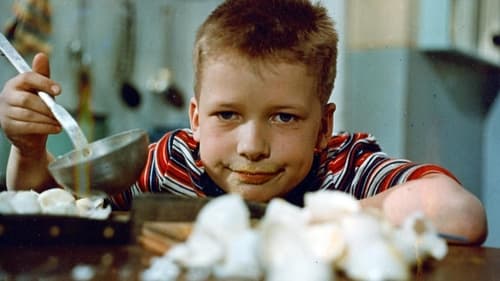
Mutter Zitterbacke
Alfons is very unlucky boy. Even when he intends well everything is going wrong, so his life is full of various mishaps.

Adam receives a flashlight with special powers: every liar it shines on flies into the air. Production was cancelled in 1965/66 due to the film's political content. Only in 1989/90 could the director reconstruct the film, where missing sounds and images are replaced with script inserts.

History teacher and coin collector Karl Schneider wants to track down an ancient coin while on vacation in Bulgaria. When he meets a group of musicians, he finds out that their singer Jana Christova is wearing this coin around her neck. He falls in love with her, but the young love soon faces some unexpected troubles. His travel companion, the pop singer Theobald, accompanies the events with music.

After a breakdown, Rita returns to her childhood village in 1961. As she recovers, she remembers the past two years: her love for the chemist Manfred, ten years her senior; how his enthusiasm about his new chemical process turned to bitter disappointment in the face of official rejection; how he escaped to West Berlin a few weeks before the Wall was built and hoped that she would follow him …

Based on a true story of inmates at KZ Buchenwald that risked their lives to hide a small Jewish boy shortly before the liberation of the camp.

Gerti Oswald
Andreas works as an assistant in his father’s small-town bakery. However, he actually has other plans: As a passionate trumpeter, he wants to study music in Berlin. His father is less than thrilled and wants his son to take over the bakery. Therefore, Andreas decides to try his luck in Berlin and starts working in a wholesale bakery together with his friend Paul. Incidentally, the in-house band is looking for a trumpeter.

Film by Helmut Schneider.

Based on a one act play in five scenes by Wolfgang Borchert, "Draußen vor der Tür" depicts the return of a former German soldier from the Eastern Front, to post-WWII Germany and the sobering realities of de-nazification and "peacetime."

In the late 1950s, the collectivization of agriculture is in full swing in the East German village of Willshagen on the German-German border. Those in charge have to face many obstacles, especially from a large-scale farmer who is unwilling to join the co-op. All of a sudden, mysterious men in a fancy car appear in the village and show an interest in the rundown manor house. Gossip spreads quickly, and some villagers think there will be a re-parceling of properties and a land swap with West Germany. They assume everything will go back to how it used to be and even expect the count to return to his manor. In preparation, the situation in the village escalates at a fevered pitch.

Film by Johannes Arpe.

Voice
Die Windrose, distribuído no Brasil com o nome A Rosa-dos-Ventos (1957), Direção Geral de Alberto Cavalcanti e Joris Ivens. Aportes em criação de Simone Signoret, Yves Montand and Helene Weigel (wife of Bertold Brecht) e Yannick Bellon. Produzido pela DEFA da Alemanha Oriental. São 5 episódios. O brasileiro Ana (1954) dirigido por Alex Viany. O italiano Giovanna (1956), dirigido por Gillo Pontecorvo.

Gritt Liebig

Schwester Hilde
The authorities expect the case of Friedel Walter, alias "Dr. Mueller," to be a straightforward one: he was working as a doctor without proper credentials under a false name. But Mehlin, the man in charge of his case, knows that there is more to the story. When he was injured fleeing from a concentration camp, resistance worker Irene asked her medical student boyfriend Walter to give him medical care.
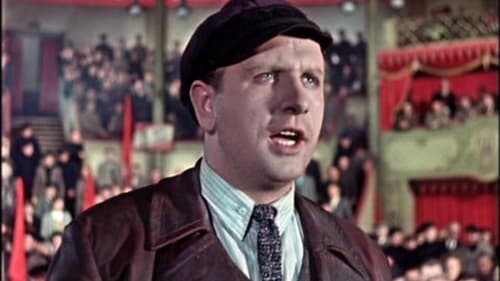
This film is the second of a two-part historical and biographical portrait of the communist politician and anti-fascist Ernst Thälmann. Autumn, 1918: Somewhere on Germany’s western front, Ernst Thälmann, age twenty-four, is calling on his fellow soldiers to put down their guns and join him in the communist struggle at home. When Hamburg’s Police Commissioner blocks a much-needed food shipment to the workers of Petrograd, Ernst battles to see it allowed through. Until his murder on August 18, 1944, Ernst remained true to his political convictions in the face of many setbacks.

Ursula Krenz
Berlin 1952, seven years after WWII. Four women are looking for a good man and happiness in the divided city. Their destinies are loosely connected through one person: the West Berlin dandy and womanizer, Conny.
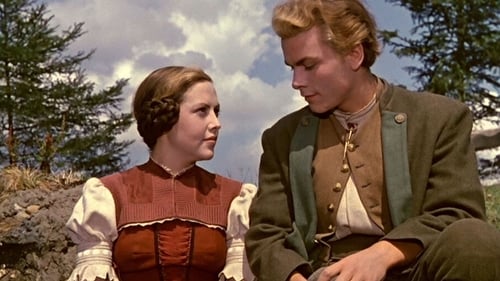
Lavish adaptation of Wilhelm Hauff′s fairy tale: Young charburner Peter Munk dreams of joining the upper class. He makes a deal with the sinister Holländer-Michel, who offers to trade Peter′s human heart for one made of stone. Once he has the "cold heart" in his body, Peter eventually strikes a fortune and enjoys great wealth, but at the same time, he becomes a bitter and emotionless man – and, having lost all traces of humanity, even murders his wife Lisbeth. Only then does Peter Munk finally realize what has become of him, and he decides to regain his real heart from Holländer-Michel.





































